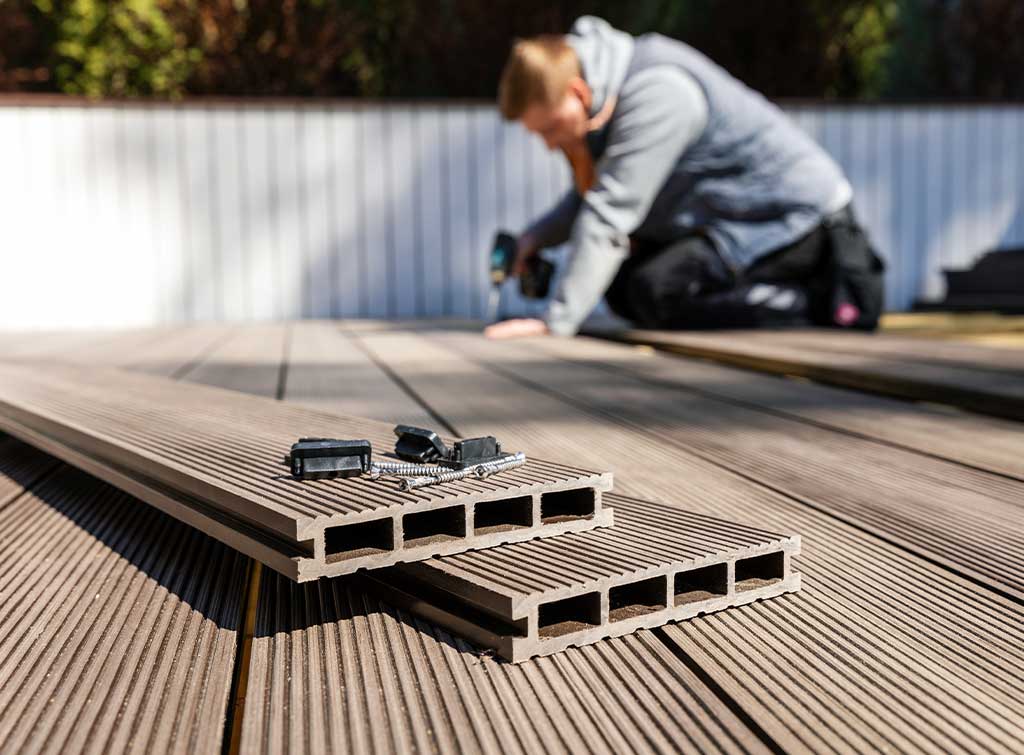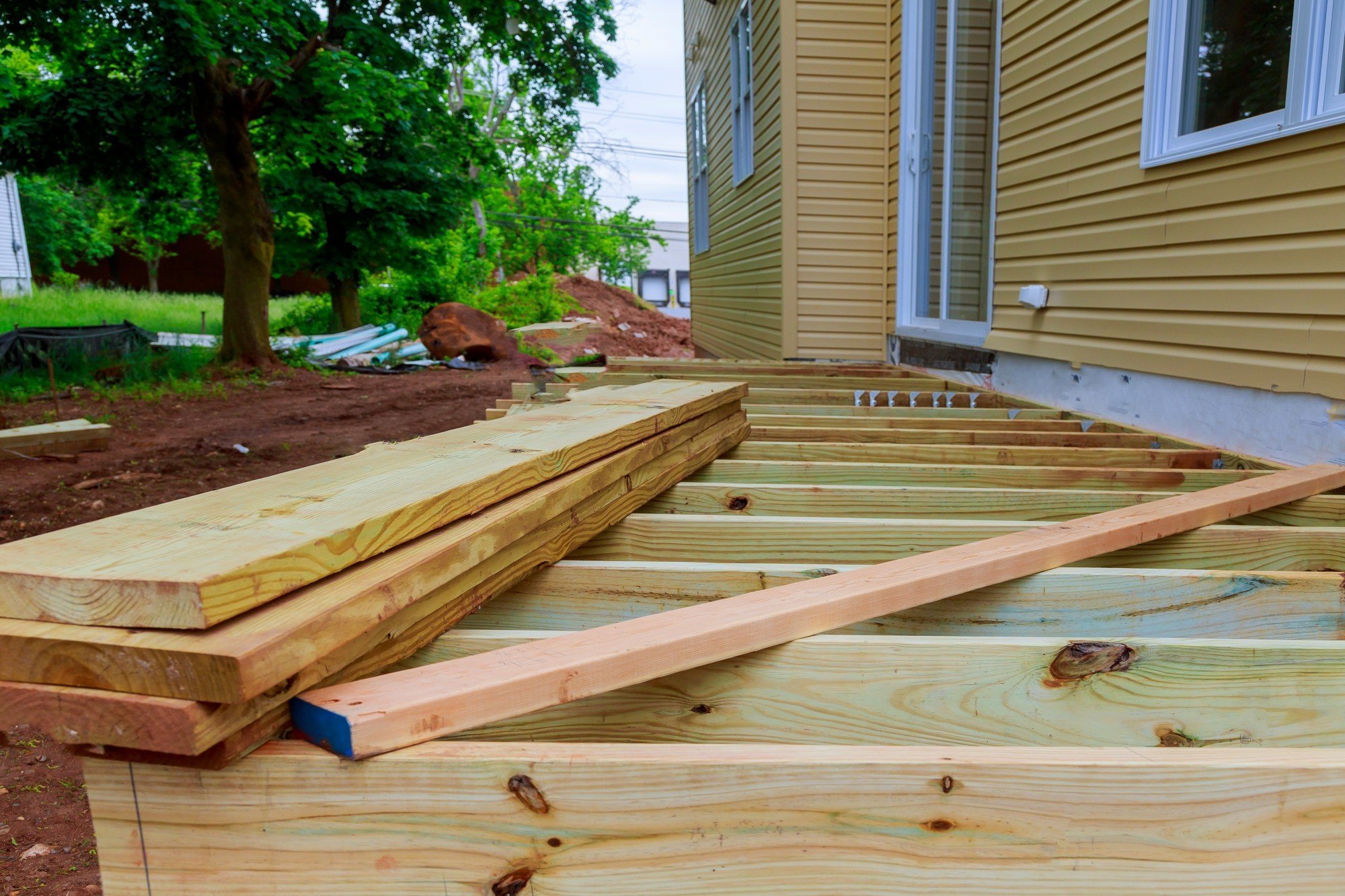Looking for expert deck installation near me to enhance your home’s exterior? Start local.
Looking for expert deck installation near me to enhance your home’s exterior? Start local.
Blog Article
How to Select the Right Products for Your Deck Installation Job
Picking the proper materials for your deck setup job can seem complicated. The key is to balance your budget, layout preferences, and way of living requires to produce a deck that will enhance your outdoor room for years to come.
Understanding the Various Sorts Of Deck Materials
When getting started on a deck installment job, the selection of materials comes to be a critical decision. Various options are offered, each with one-of-a-kind characteristics and visual allure. Traditional wood, for circumstances, offers a classic, all-natural look and is commonly more affordable. It can warp over time and requires routine upkeep. Compound products, on the other hand, are a blend of timber and plastic, giving longevity and resistance to weather components. They demand less maintenance contrasted to wood however are generally a lot more expensive. An additional alternative is vinyl, which is essentially maintenance-free and immune to bugs and rot, albeit less natural-looking. By recognizing these differences, home owners can make a much more enlightened choice on one of the most appropriate deck product for their specific requirements.
Examining the Sturdiness and Maintenance Demands of Deck Materials
Evaluating the longevity and upkeep requirements of deck materials is a vital action in deck setup. Durability involves the product's capability to endure severe weather conditions, deterioration, and its long life. As an example, cedar and redwood are normally resistant to rot and pests, making them resilient selections. On the other hand, pressure-treated timber, while sturdy, may call for even more maintenance due to its vulnerability to breaking and contorting.
Recognizing upkeep requirements is similarly vital. Some products require routine securing or discoloring to preserve their appearance and withstand moisture damage, while others, like composite outdoor decking, require less maintenance. By reviewing these aspects, one can pick the most appropriate decking product, making certain a balance in between toughness, upkeep demands, and visual allure.
Cost Analysis: Contrasting Wood and Composite Decking
Although expense may originally look like a second concern, it is a considerable variable when comparing timber and composite decking. Wood, typically a less costly choice, has a reduced in advance expense. Over time, maintenance costs can collect, possibly making wood extra expensive in the long run. These maintenance expenses might consist of staining, sealing, or changing damaged boards. On the various other hand, composite outdoor decking, while costlier originally, requires much less upkeep, possibly decreasing long-term prices. Yet, it's important to keep in mind that composite outdoor decking isn't unsusceptible wear and tear, and replacement expenses can be high. For that reason, prospective deck owners must consider their budget plan and determination to maintain their decks when deciding between wood and composite decking.
Visual Appeals and Layout Adaptability of Decking Materials
Natural timber decking gives a timeless, classic appearance, while composite materials provide a broad array of shades and structures to suit diverse tastes and styles. Compound products, while much less flexible in design, are still adaptable sufficient for the majority of deck designs. These aspects, as a result, are critical components in the option of outdoor decking material.
Environmental Influence of Decking Materials
When selecting decking materials, one have to take into consideration not only visual appeals and toughness, yet also the environmental effect. It's crucial to analyze the sustainability of materials and explore recycled decking alternatives. Understanding the prospective effect on regional ecological communities will certainly ensure a more eco liable choice.
Assessing Material Sustainability
In the realm of deck construction, examining product sustainability is a crucial action. This involves examining the environmental impact of each potential material, taking into consideration aspects such as the power required for its manufacturing, its carbon footprint, and its end-of-life disposal or reusing choices. For instance, wood his comment is here is a renewable energy, but unsustainable logging methods can result in logging. Composite outdoor decking materials commonly integrate timber and plastic, lowering the demand for new wood yet boosting dependence on fossil fuels. Aluminum and other metals may be more resilient and recyclable, yet their removal and handling can be energy-intensive. Therefore, the choice of decking products should balance functionality, visual appeals, expense, and sustainability to ensure a liable and you could look here durable installation.
Recycled Outdoor Decking Options

Compound outdoor decking is especially prominent due to its resilience and simplicity of maintenance. It's resistant to rot, bugs, and fading, making it a long-lasting option. Recycled plastic decking, on the other hand, is extremely resistant and calls for very little maintenance. While these products might carry a greater first price, their durability and lowered ecological effect make them a wise financial investment for the eco-conscious homeowner.

Influence on Local Ecosystems
While the benefits of utilizing recycled products for decking can not be overstated, it's similarly crucial to consider the broader environmental implications of these choices. Correct disposal of old decking is important to reducing land fill waste. Basically, an eco-conscious deck task demands mindful product choice, lasting sourcing, and liable disposal.
Making Your Last Decision: Tips for Choosing the Finest Deck Materials
As the post changes into the subtopic of "Making Your Final Decision: Tips for Choosing the Best Deck Products", it is essential to comprehend the selection of deck products available. Striking an equilibrium in between sturdiness and aesthetics is important in this option procedure. The complying with conversation will guide viewers in making an informed selection based on these crucial factors to consider.
Comprehending Various Deck Products
The task of choosing the right products for your deck installation can appear discouraging due to the huge selection of choices available. Vinyl or PVC decks are even a lot more sturdy and require much less maintenance than composite materials, yet they can look much less all-natural. Aluminum decks are solid, basics lightweight, and immune to rot, but they are additionally the most costly alternative.
Sturdiness vs. Visual Appeals Equilibrium
Stabilizing resilience with looks can be an obstacle when selecting deck materials. The decision usually comes down to individual choices and the deck's planned usage. High-traffic locations may demand sturdy products like composite outdoor decking, which withstands damage however might do not have the natural beauty of wood. On the other hand, wood supplies an ageless allure and heat that artificial products struggle to replicate. Nonetheless, it requires much more maintenance and may not last as long. As a result, house owners require to strike a balance, thinking about both the deck's practical demands and their visual choices. By doing so, they can guarantee their deck continues to be a useful and eye-catching outside room for years to come.
Conclusion
Finally, picking the right products for your deck installation project needs careful consideration of aspects such as longevity, maintenance, price, looks, and environmental impact. Whether you go with traditional timber or composite materials, your option needs to line up with your budget plan, style preferences, and lifestyle. Inevitably, the most effective decking product is one that boosts your outdoor area and provides satisfaction for several years to come.
Report this page